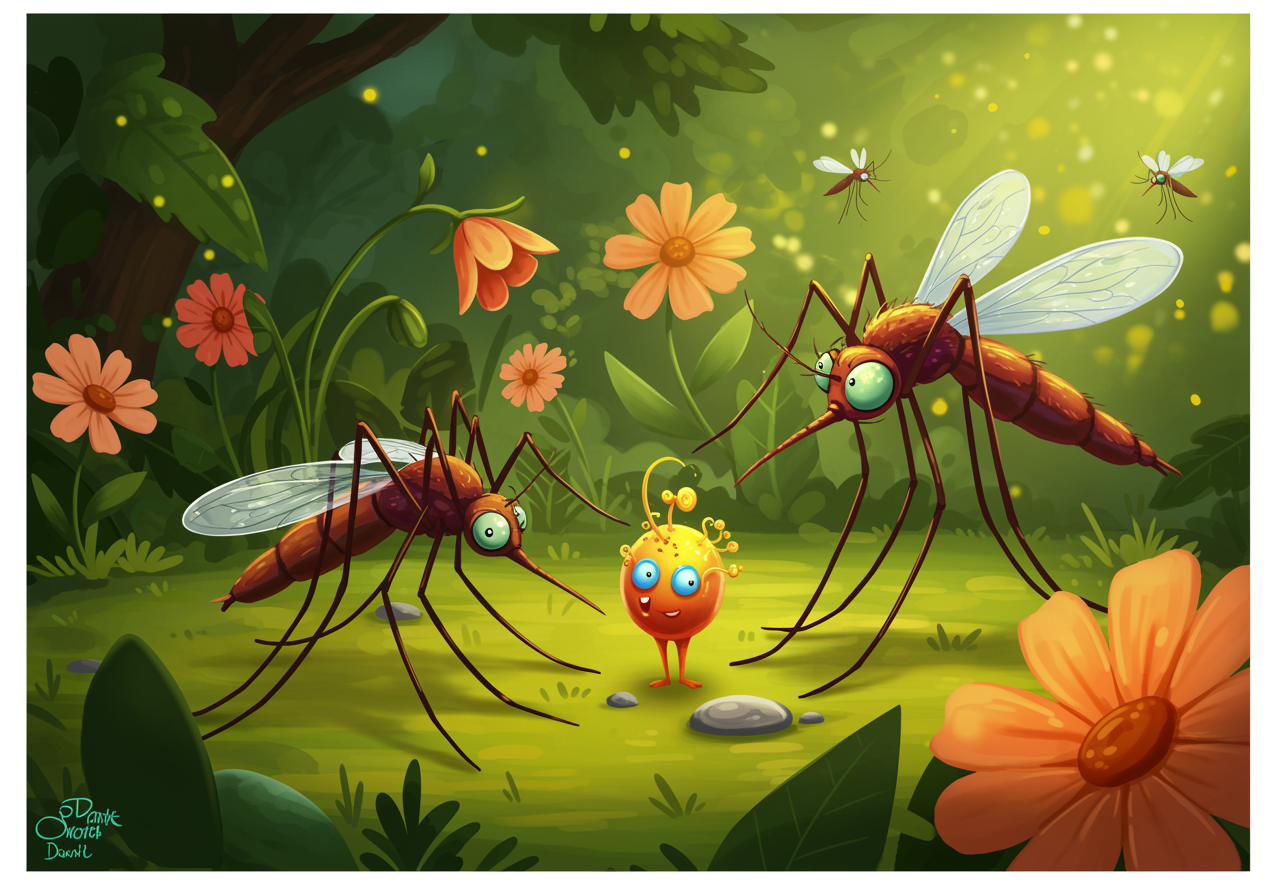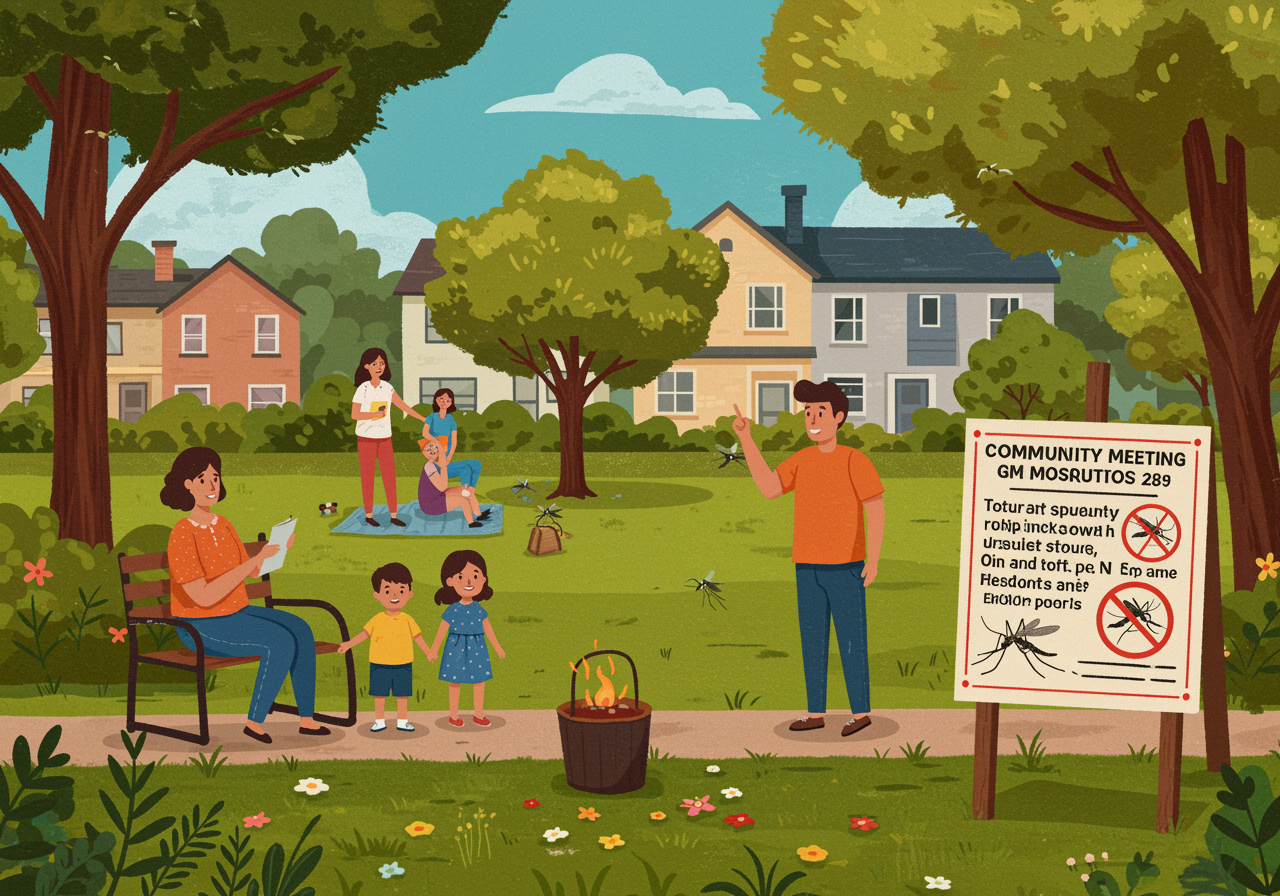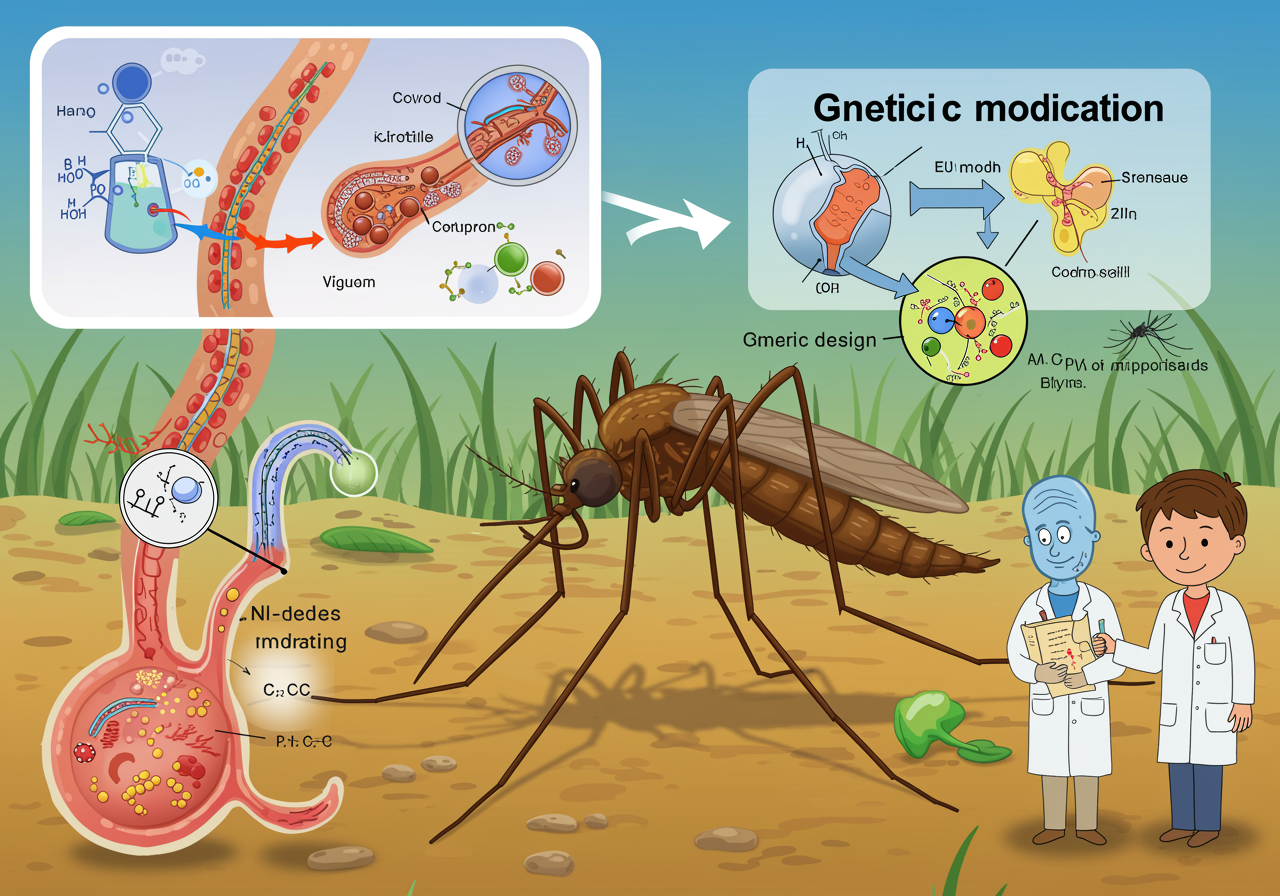Super Mosquitoes vs. Nature’s Balance: The Great Genetic Debate
When scientists play matchmaker with mosquito DNA, should we cheer or worry?
Dive into the buzzing controversy over genetically modified mosquitoes and discover why this tiny insect is causing such big debates around the world.
Overview
Imagine if scientists could create mosquitoes that help save millions of lives by stopping deadly diseases like malaria and Zika. Sounds amazing, right? But what if those same modified mosquitoes might affect nature in ways we don't fully understand yet? This is exactly the debate happening right now around the world, and it's a perfect example of how cool science can also be complicated. Talking about this topic helps kids understand that even the smartest scientists sometimes disagree, and that's totally normal and healthy in science.

Understand in 30 Seconds
Get up to speed quickly
- The Problem: Regular mosquitoes spread deadly diseases like malaria, Zika, and dengue fever to over 700 million people every year. That's like infecting everyone in the US twice!
- The Solution Idea: Scientists create modified mosquitoes that either can't reproduce or produce offspring that die young, hoping to shrink disease-carrying mosquito populations.
- The Support: Supporters believe GM mosquitoes could save millions of lives and reduce suffering, especially in tropical countries where these diseases hit hardest.
- The Concerns: Critics worry about unknown effects on ecosystems, what happens if something goes wrong, and whether we should be changing nature this way.
Real Life Scenario
Situations you can relate to
Think about your neighborhood park. Now imagine if all the squirrels there carried a virus that made people very sick. Scientists might say, 'Let's create special squirrels that can't have baby squirrels, so the sick ones disappear!' Some neighbors would cheer because nobody wants to get sick from squirrel bites. But others might worry: 'What if those special squirrels affect the oak trees? What if birds that eat squirrels get confused? What if we make a mistake we can't undo?' This is exactly what's happening with mosquitoes in places like Florida and Brazil, where scientists have released modified mosquitoes to fight diseases. Some communities celebrate, while others protest. The tricky part? Both sides have really good points.

Role Play
Spark a conversation with “what if” scenarios
What if you were the mayor of a town where mosquitoes spread a disease that makes 1 in 10 people seriously ill?
- Role play: One person plays the mayor who has to decide whether to allow GM mosquitoes. The other plays concerned citizens with different viewpoints. Practice listening to both the excited scientist and the worried environmentalist.
What if you discovered a way to modify ants in your backyard so they couldn't damage your garden, but your neighbor was worried about affecting the whole ecosystem?
- Role play: Role-play a neighborhood meeting where you have to explain your idea and address concerns. Practice explaining both the benefits and the risks honestly.
What if you were a scientist who spent 10 years developing GM mosquitoes, but half the community didn't trust your research?
- Role play: Practice explaining complex science in simple terms and addressing fears without dismissing them. Take turns being the scientist and the questioning community members.
FAQs
Frequently asked questions people want to know
How exactly do scientists modify mosquitoes?
Scientists add special genes that either make male mosquitoes produce offspring that die before adulthood, or they add bacteria that stops viruses from growing inside the mosquito. It's like giving mosquitoes a genetic instruction that changes how they work.
Are GM mosquitoes already being used somewhere?
Yes! Countries like Brazil, Panama, and parts of the US (including Florida and California) have released millions of GM mosquitoes in trials to see if they reduce disease-carrying mosquito populations.
What could go wrong with modified mosquitoes?
Some scientists worry the modifications might not work as expected, could affect other animals that eat mosquitoes, or might create resistance in mosquito populations. Others are concerned about long-term effects we can't predict yet.
Examples in the Wild
See how this works day to day
- Oxitec released billions of GM mosquitoes in the Florida Keys starting in 2021 to reduce Aedes aegypti populations that spread Zika and dengue (EPA and FDA approvals, ongoing monitoring by Florida Department of Health)
- Brazil has used GM mosquitoes in several cities since 2014, reporting up to 95% reduction in disease-carrying mosquito populations in some areas (World Health Organization reports and peer-reviewed studies in Nature journals)
- Indonesia is testing GM mosquitoes with Wolbachia bacteria that block dengue virus transmission, showing promising results in early trials (World Mosquito Program research published in New England Journal of Medicine)
- California approved GM mosquito releases in 2022 for Fresno County to target invasive Aedes aegypti mosquitoes that arrived recently (California Department of Public Health and EPA regulatory approvals)
In Summary
What you should know before you start
- Scientists create modified mosquitoes to fight deadly diseases, potentially saving millions of lives worldwide
- The technology works by reducing mosquito populations or stopping them from carrying viruses
- Supporters focus on the huge health benefits, while critics worry about environmental risks and unknown consequences
- Real-world trials are happening now in several countries, giving us data about whether the approach works safely
Pro-tip for Parents
You got this!
When discussing controversial science topics, avoid taking sides immediately. Instead, model curiosity by asking questions like 'What evidence supports each viewpoint?' and 'What don't we know yet?' This teaches your teen that good thinking means considering multiple perspectives and that uncertainty in science is normal, not scary. If your teen gets frustrated by the lack of clear answers, remind them that the best scientists are comfortable saying 'We're still learning about this.'

Keep an Eye Out For
Find these examples in everyday life
- News stories about GM mosquito releases in your area or other countries – these often spark local debates you can discuss
- Science museums or nature centers that might have exhibits about genetic engineering or mosquito-borne diseases
- Weather reports about mosquito season or disease outbreaks – great conversation starters about why this research matters
Explore Beyond
Look up these related research topics
- How scientists use genetic engineering in medicine (like insulin production or gene therapy)
- Other examples of humans changing ecosystems (like introducing species to control pests)
- How diseases spread and why some animals are better at carrying viruses than others